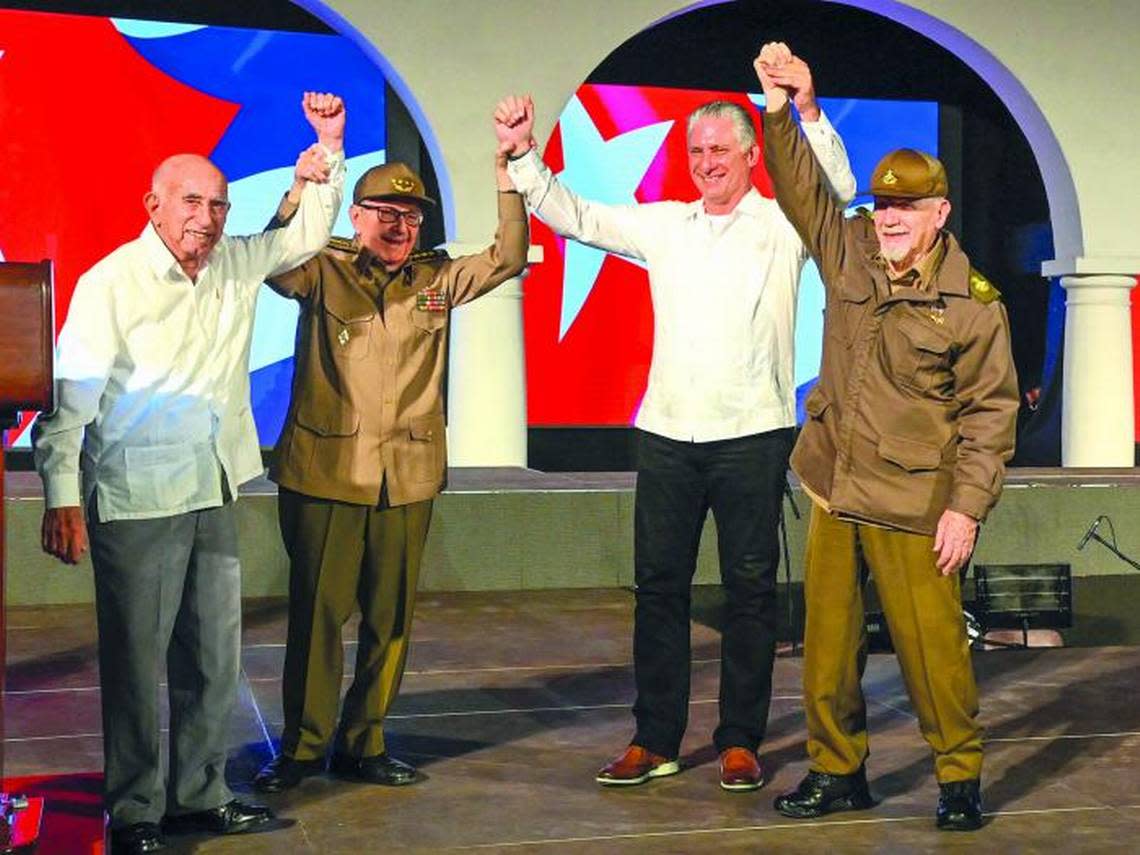Is the U.S. slowly trying to improve relations with Cuba? Let’s hope not | Opinion

Cuban government officials’ recent, unannounced tour of Miami International Airport, arranged by the Transportation Security Administration, is only one of the latest signs of a possible thawing of U.S.-Cuba relations. There are other troubling indications:
This week, the Biden administration announced it will allow Cuban independent entrepreneurs to open bank accounts in the United States remotely from the island to support the private sector in Cuba, which was halted for months due to objections from Congress.
It appears that months before the upcoming presidential elections in the United States, proponents of political rapprochement with Cuba are already making moves. Their goal, I believe, is to fully restore diplomatic relations with the Havana dictatorship if President Biden wins re-election in November.
Although President Biden has shown no public interest in reestablishing relations with Cuba and has maintained elements of former President Donald Trump’s policy, the possibility does not seem so remote or implausible. Remember that President Barack Obama’s rapprochement with Cuba did not happen overnight.
In March, the first Tampa International Book Fair was held in that city. Its theme was Cuban literature. The fair became controversial when some Cuban exiled authors from Miami who traveled to Tampa to present their works learned they would be doing so alongside writers supportive of the Castro dictatorship. Among those were Cuban authors Francisco López Sacha and Rigoberto Rodríguez Estenza, who signed a letter supporting the dictatorship’s repression of the July 11, 2021 protesters.
On April 18, the Biden administration celebrated “Cuba Day at the White House.” The festivities included Homeland Security Secretary Alejandro Mayorkas remarks, an exhibition of historical Cuban documents from the University of Miami’s Cuban Heritage Collection, and a Cuban pianist Chucho Valdés performance. Among the guests were several proponents of thawing relations with Havana.
The influence of the pro-rapprochement lobby towards Cuba has also continued its work behind the scenes.
On Nov. 29, 2023, four prominent Miami activists who favor the opening of U.S. relations towards Cuba, met with Juan González, then special assistant to the president and senior director for Western Hemisphere affairs at the National Security Council.
We do not know precisely what was discussed in the meetings, but it is not difficult to suppose that they addressed the issue of Cuba due to their shared interest in achieving a new rapprochement with the Cuban government.
Months later, the moves by those in favor of thawing relations continue.
In recent weeks, Cuban exile Carlos Saladrigas, among those who has publically supported openings relations with Cuba, accompanied U.S. Navy Secretary Carlos del Toro, a Cuban-American, on a visit to the Bay of Pigs Museum located in Little Havana.
In photos shared by the Museum, Saladrigas appears with the board members. Throughout its history, the Bay of Pigs Veterans Association has opened its doors to politicians and other visitors from the U.S. and around the world to enable them to learn about their history of struggle and sacrifice. However, they have always firmly maintained their commitment to Cuba’s freedom and have rejected any rapprochement with the Havana dictatorship.
Other recent events are cause for concern. On May 15, the Biden administration removed Cuba from the list of countries not cooperating against terrorism. Then on May 20th, Cuban Independence Day, a delegation of five Cuban government officials, were given a tour of controlled areas of MIA, angering local officials who had no idea of the controversial visit.
All this means Cuban exile organizations and institutions in Miami must be vigilant not to be used for political purposes by individuals who are far removed from their steadfast position and struggle for Cuba’s freedom.
If they fail to do so, they risk inadvertently playing into the hands of the Cuban dictatorship.
Daniel I. Pedreira is an adjunct professor of political science at Florida International University and Miami Dade College.

